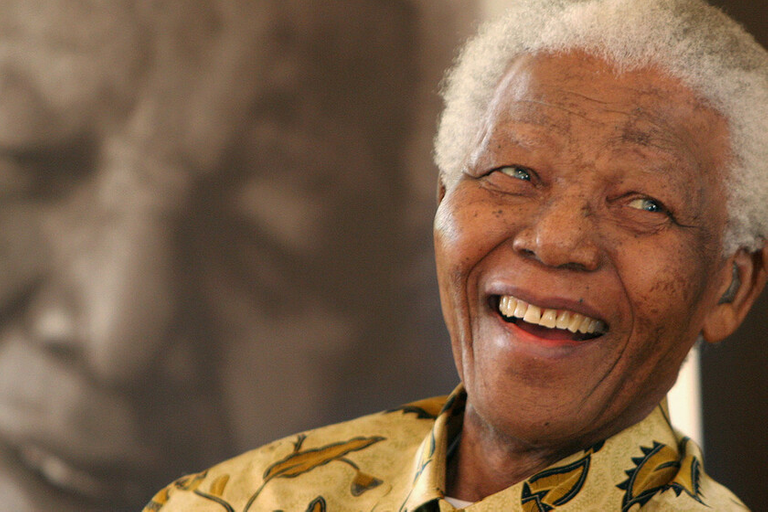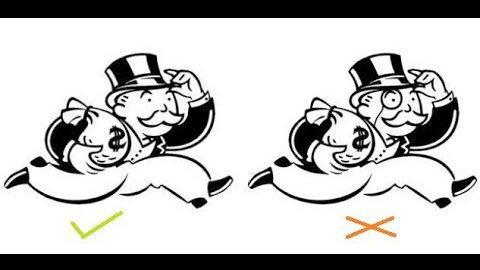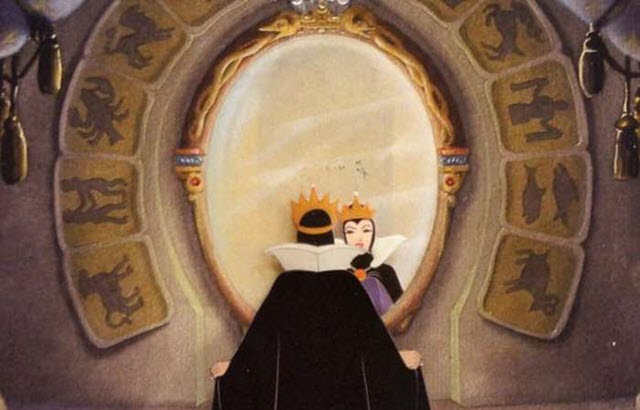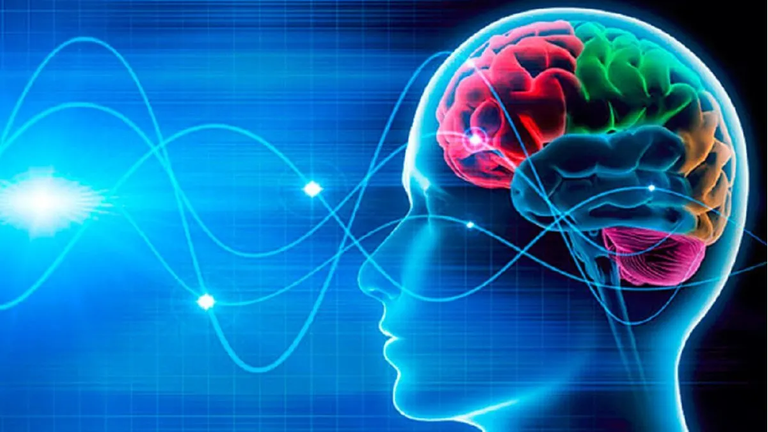
¿Alguna vez has oído hablar del efecto Mandela? Probablemente lo has experimentado cientos de veces y te has impresionado o extrañado, sin siquiera percatarte de que es algo común y le pasa a muchas personas, sigue leyendo este artículo y te sorprenderás.
Have you ever heard of the Mandela effect? You have probably experienced it hundreds of times and you have been impressed or surprised, without even realizing that it is something common and happens to many people, keep reading this article and you will be surprised.

El efecto Mandela no es otra cosa más que un recuerdo falso, pero que es tan realista que la persona está absolutamente convencida de que es real, sin embargo lo más impresionante de este fenómeno es que puede ser colectivo, es decir, muchas personas alrededor del mundo pueden estar convencidas de algo que realmente no es como imaginan.
The Mandela effect is nothing more than a false memory, but it is so realistic that the person is absolutely convinced that it is real, however the most impressive thing about this phenomenon is that it can be collective, that is, many people around the world can be convinced of something that really is not as they imagine.
Hay muchísimos ejemplo de esto pero el más popular es el de la famosa escena de Star Wars donde Darth Vader le revela a Luke Skywalker que es su padre. La mayoría de las personas recuerda que él dijo algo como: "Luke I'm your father" ("Luke, yo soy tu padre") pero la realidad es que jamás lo mencionó, solo dijo "No, I'm your father" ("No, yo soy tu padre")
There are many, many examples of this but the most popular is the famous Star Wars scene where Darth Vader reveals to Luke Skywalker that he is his father. Most people remember him saying something like, "Luke, I am your father" but the reality is that he never mentioned it, he just said "No, I am your father".
Sin embargo yo tengo un ejemplo personal de este fenómeno, y es que cuando fui al cine a ver "Harry Potter y las Reliquias de la Muerte parte 2" en la escena de los recuerdos de Snape cuando él entra en la casa de los Potter y ve a Lily muerta, yo estaba convencida de que había visto que él sacaba al pequeño Harry de su cuna y lo sostenía en sus brazos por un rato mientras lloraba, le pregunté a mi hermana y ella me dijo que también le sucedió, otras personas no estuvieron de acuerdo conmigo pero algunas sí. Si ven la secuencia de escenas de se darán cuenta de que esa parte que de las que le hablé no está, porque obviamente no existe. .. ¿cómo pudo ser esto posible? ¿cómo pude recordar algo que realmente no pasó?
However I have a personal example of this phenomenon, when I went to the movies to see "Harry Potter and the Deathly Hallows part 2" in the scene of Snape's memories when he enters the Potter's house and sees Lily dead, I was convinced that I had seen him take little Harry out of his crib and hold him in his arms for a while while he cried, I asked my sister and she told me that it also happened to her, other people did not agree with me but some did. If you watch the sequence of scenes you will notice that the part I told you about is not there, because obviously it doesn't exist... how could this be possible? how could I remember something that didn't really happen?
Y esto sucede así con muchísimas otras cosas como El Señor Monopoly por ejemplo, a quien muchos recordamos con su atuendo habitual pero con un monóculo en el ojo derecho, cuando en realidad nunca tuvo ese monóculo, o el caso de la bruja de la película animada de Blancanieves (1952) a quien siempre recordamos diciendo "Espejito espejito", una frase que jamás dijo en la película.
And this happens with many other things like Mr. Monopoly for example, whom many of us remember with his usual costume but with a monocle in his right eye, when in fact he never had that monocle, or the case of the witch in the animated movie Snow White (1952) whom we always remember saying "Mirror Mirror", a phrase she never said in the movie.


¿Pero qué tiene que ver Mandela en todo esto?
But what does Mandela have to do with all this?
En el año 2013 cuando falleció Nelson Mandela a la edad de 94 años, una mujer llamada Fiona Broome vio la noticia por televisión y le pareció sumamente extraño ya que ella estaba convencida de que había visto la noticia de la muerte de Mandela en los años 80, incluso recordó el funeral, todo, entonces habló con su familia y ellos no estuvieron de acuerdo con ella, sin embargo no se resignó y escribió sobre esta situación en su blog, poco tiempo después empezó a recibir respuesta de personas al rededor del mundo afirmando que también habían visto la noticia del fallecimiento de Mandela en los años 80 y que recordaban todos los detalles del acontecimiento.
In 2013 when Nelson Mandela passed away at the age of 94, a woman named Fiona Broome saw the news on television and found it extremely strange as she was convinced that she had seen the news of Mandela's death in the 80's, she even remembered the funeral, everything, then she talked to her family and they disagreed with her, However, she did not resign herself and wrote about this situation in her blog, shortly after she began to receive responses from people around the world stating that they had also seen the news of Mandela's death in the 80's and that they remembered all the details of the event.

¿Por qué sucede esto? ¿Acaso vivimos realidades alternas?
Why is this happening? Are we living in alternate realities?
En realidad la respuesta es más simple de lo que imaginamos. No existe un lugar especifico en nuestro cerebro dedicado a la memoria, esta se encuentra repartida por distintas areas, existen circuitos entre las redes neuronales que constantemente se adaptan a la nueva información que recibimos a diario, por lo tanto cuando surge un recuerdo en nuestra memoria es muy posible que la realidad sea diferente a lo que recordamos, ya que nuestra memoria absorbió información nueva cuyos elementos de alguna manera se adaptan al viejo recuerdo y simplemente la adapta a él.
Actually the answer is simpler than we imagine. There is not a specific place in our brain dedicated to memory, this is distributed in different areas, there are circuits between neural networks that constantly adapt to new information we receive daily, so when a memory arises in our memory it is very possible that the reality is different from what we remember, because our memory absorbed new information whose elements somehow adapt to the old memory and simply adapts to it.

Los recuerdos se construyen por asociación, por lo tanto es bastante probable que el efecto Mandela haya surgido debido a que en los años 80 efectivamente se habló de él en las noticias debido a un concierto que se realizó en su honor, para colmó se enfermó poco tiempo después y, para colmo en ese mismo tiempo aparecieron noticias de funerales de activistas sudafricanos, por lo tanto la memoria colectiva pudo haber registrado esos eventos entremezclándolos entre sí y asociándolos con Mandela, el resto fue sugestión, cuando una persona te habla con mucho convencimiento sobre algo terminas por creerlo y hasta "recordando" tú también.
Memories are constructed by association, therefore it is quite likely that the Mandela effect has arisen because in the 80's he was indeed in the news due to a concert held in his honor, to top it off he got sick shortly after and, to top it off, at the same time news of funerals of South African activists appeared, therefore the collective memory could have registered those events intermingling them with each other and associating them with Mandela, the rest was suggestion, when a person speaks to you with much conviction about something you end up believing it and even "remembering" you too.


Ciertamente es un fenómeno colectivo digno de atención por ser tan desconcertante pero como pueden ver, una vez que lo estudiamos un poco más a fondo, nos damos cuenta de que tiene una explicación muy simple y lógica.
It is certainly a collective phenomenon worthy of attention because it is so puzzling, but as you can see, once we study it a little further, we realize that it has a very simple and logical explanation.
Esto ha sido todo por hoy, amigos, espero que el artículo les haya parecido interesante y que si no sabían esta información, ahora que la saben se la cuenten a sus amigos y familiares. Muchísimas gracias por leer.
That's all for today, friends, I hope you found the article interesting and that if you didn't know this information, now that you do, tell your friends and family about it. Thank you very much for reading.

Imagen diseñada por mi en el editor de Canva.
Post votado por la Curación de la Comunidad de Mundo Virtual. Recibes algunos Huesos
Gracias, muchísimas gracias por el apoyo.
Vaya!! Interesante información, gracias por compartir @mairene1, no conocía ese efecto con ese nombre, en realidad, no sabía que se debía a un efecto colectivo, me ha pasado y pensaba que era algo extraño, pero no le había dado importancia, trataré de buscar mas información al respecto, aunque tu publicación fue muy clara y entendible, éxitos!!
Muchísimas gracias a ti por leer. Yo soy muy curiosa, así que siempre estoy buscando información acerca de estas cosas porque la verdad este, por ejemplo es un fenómeno bastante desconcertante, igual que los dejavú.
WOW! Este tema es interesante. Gracias por explicar tan bien e ilustrarlo con ejemplos. Siento que en algún momento me ha sucedido. Un saludo
Sí, a mi también me ha sucedido y es extrañísimo. Gracias a ti por leer y comentar.